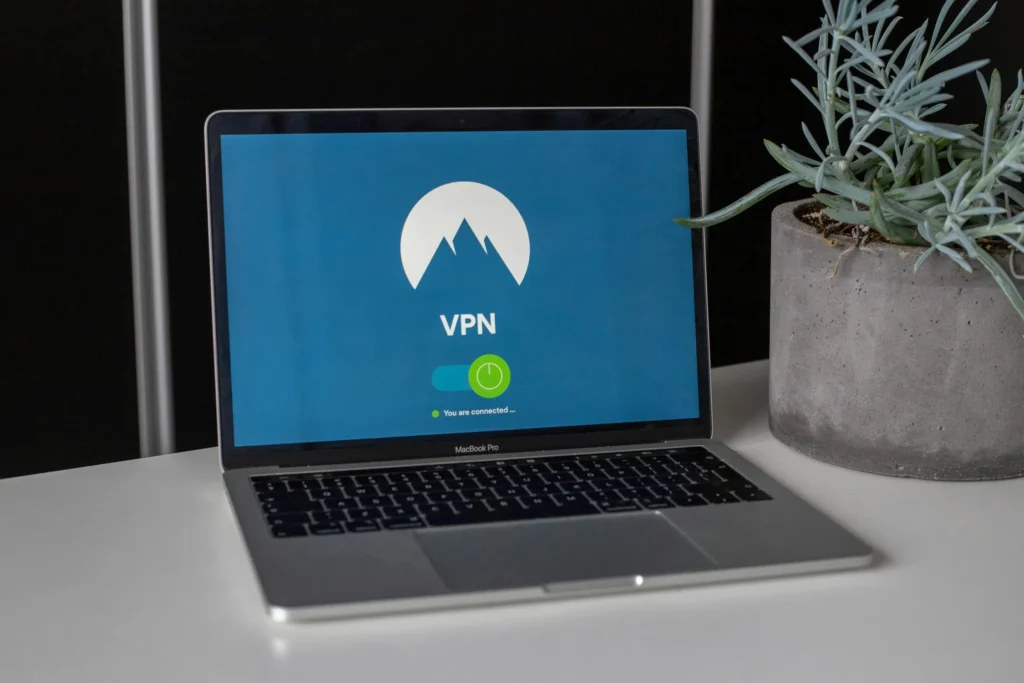Have you ever felt like the internet is watching you? Maybe you want to access websites blocked in your region or simply browse privately without leaving a trace. Well, proxies can be a helpful tool for achieving that.
Think of a proxy as a secret tunnel for your internet traffic. It hides your location and online activity from the websites you visit, giving you more privacy and control over your browsing experience. However, it’s crucial to understand how to use proxies safely and responsibly.
With that in mind, here are a few tips on how to utilize proxies securely:
Image source: https://images.pexels.com/photos/4489171/pexels-photo-4489171.jpeg?auto=compress&cs=tinysrgb&w=1260&h=750&dpr=1
1. Understand The Different Types Of Proxies
As mentioned, proxies mask your device’s IP address by redirecting your internet activities through proxy servers instead of going directly to the online page you want to access. For instance, proxies allow you to securely access region-restricted content, like streaming services unavailable in your country. They enhance privacy when using public Wi-Fi hotspots that are vulnerable to snooping. Some even cache frequently accessed sites, improving load times.
The best part is that there are many types of proxies with distinct characteristics and requirements. Consider visiting websites like Proxy.Coupons to find accumulated proxies with different offers, discounts, and promotion codes.
Some of the standard proxy categories include the following:
- Hypertext Transfer Protocol (HTTP) proxy: This type of proxy is excellent for web browsing. It encrypts the data transmitted, shielding it from potential eavesdroppers or man-in-the-middle attacks. This cryptographic protection safeguards your online activities and communications as they traverse the proxy connection.
- Socket Secure (SOCKS) proxy: These proxies create a Transmission Control Protocol (TCP) connection between your device and the proxy server, facilitating direct data transfers. This seamless connection is particularly beneficial for peer-to-peer file sharing and torrenting activities that require rapid data exchange.
- Residential proxy: Residential proxies employ IP addresses issued to homeowners by Internet Service Providers. This cloaks your online activities, making them indistinguishable from routine residential user traffic. Websites perceive your requests as originating from an ordinary home network instead of a proxy server.
- Transparent proxy: These proxies don’t conceal your IP address or provide anonymity. Instead, they serve as intermediaries for purposes like caching and filtering content to improve performance and control access. Their transparent nature makes them ideal for utilization within organizations to accelerate data delivery to users without anonymity needs.
Understanding the distinct proxy types and use cases is crucial for leveraging them effectively and responsibly. If you’re on a tight budget, some proxy providers offer free trials or limited plans that can be sufficient for casual use—websites like EarthWeb can help you find deals and discounts on these services.

Image source: https://www.pexels.com/photo/grey-and-black-macbook-pro-showing-vpn-2064586/
2. Choose Reputable Proxy Providers
When choosing a proxy provider, exercising due diligence is paramount for safeguarding your privacy and online security. Thoroughly vet potential providers by scrutinizing their reputations, reading user reviews, and examining their privacy policies.
Reputable paid services are more trustworthy, as they have a vested interest in protecting client data and maintaining confidentiality. In contrast, free proxy services often monetize by logging user activities, injecting intrusive ads, or sometimes selling data to third parties—undermining the core purpose of using a proxy.
Also, assess providers’ server locations, connection speeds, and compatibility with your desired use case, whether circumventing geo-restrictions for streaming content or engaging in secure peer-to-peer file sharing. A credible proxy provider offers robust encryption, regularly rotates IP addresses, and discloses transparent data handling practices.
3. Adhere To Legal And Ethical Practices
Responsible proxy usage demands adherence to legal and ethical practices. It involves steering clear of copyright infringement, privacy violations, internet fraud, and activities a website’s terms of service prohibit. Ethical conduct means not exploiting proxies for cyberbullying, malware dissemination, or other malicious purposes.
For instance, using a proxy to access copyrighted material without authorization or to bypass website restrictions for criminal activities would be unethical. However, leveraging proxies for legitimate purposes like enhancing online privacy or accessing region-restricted content is acceptable. Ultimately, proxy users must exercise discretion and moral judgment to ensure their actions align with legal and ethical norms.
4. Ensure Data Security
Protecting your data is paramount when utilizing proxies. Prioritize proxy services that employ encrypted connections, shielding your data from prying eyes during transmission. Exercise vigilance when handling sensitive information, verifying that the proxy doesn’t log your activities without legitimate justification and transparent disclosure. Regularly update proxy settings, passwords, and security protocols to fortify defenses against unauthorized access attempts.
For instance, avoid free public proxies that lack encryption, as they render your data vulnerable to interception by malicious actors. Instead, opt for reputable, paid proxy services that prioritize security through robust encryption and transparent privacy policies.
Routinely audit your proxy configurations, promptly address potential vulnerabilities, and eliminate unnecessary data logging to minimize risk exposure. This safeguards your privacy, protects sensitive information, and mitigates the consequences of potential breaches or misuse.
5. Utilize Proxy Management Tools
Proxy management tools streamline advanced proxy deployments involving rotating residential IP addresses, enhancing anonymity. These tools automate seamless switching between multiple IP addresses at predetermined intervals, hiding your digital footprint.
For instance, if you operate an e-commerce business, a proxy management tool can rotate your IP address periodically, preventing online tracking and maintaining customer privacy. Leveraging such tools eliminates the need to change your IP address manually, providing a seamless and secure online experience while safeguarding your anonymity across various digital platforms.
Conclusion
Proxies offer a valuable tool for navigating the online world with increased privacy and control. By understanding different proxy types, choosing reputable providers, adhering to ethical practices, prioritizing data security, and utilizing proxy management tools, you can harness the advantages of proxies responsibly. Remember, great anonymity comes with substantial responsibilities. Use proxies ethically and explore the vast possibilities of the internet with an extra layer of security and freedom.


